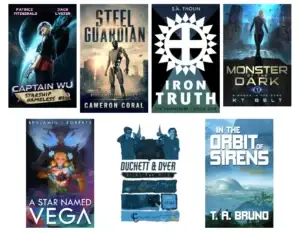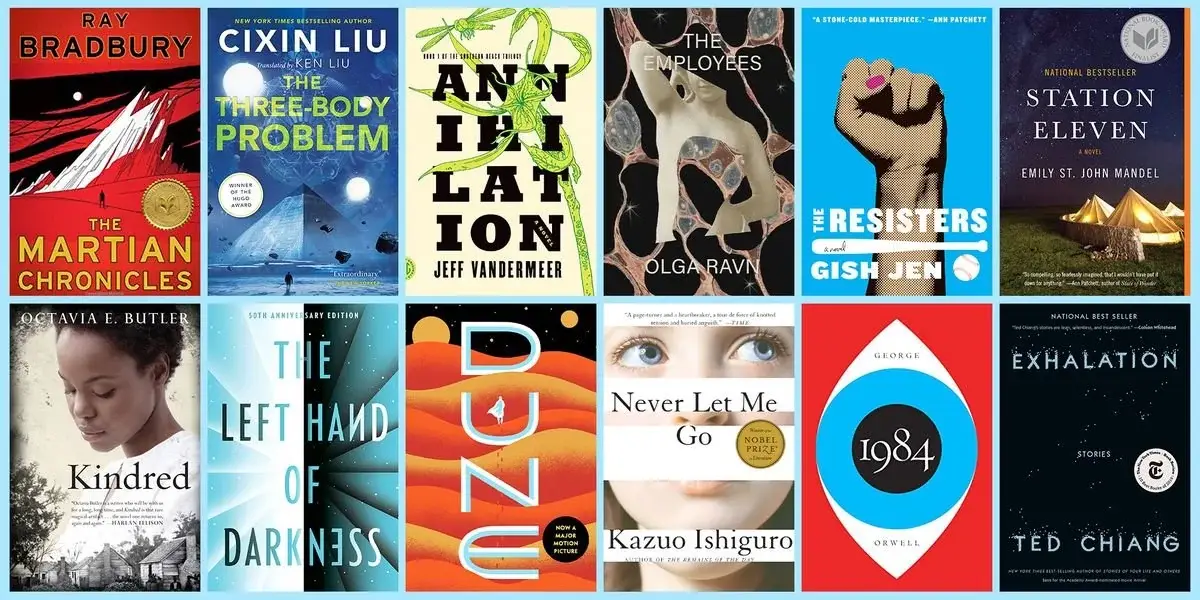Best Science Fiction books
Best Science Fiction books have long captivated readers with their ability to transport them to other worlds, times, and dimensions. Combining imaginative storytelling with speculative ideas, sci-fi explores the possibilities of the universe and the impact of science and technology on humanity. From timeless classics to modern masterpieces, the genre offers something for everyone—thought-provoking tales, thrilling adventures, and profound reflections on our existence. Here, we delve into the essence of sci-fi books, their themes, and must-read titles that define the genre.

The Appeal of Sci-Fi Books
Best Science Fiction books stand apart because they challenge the boundaries of imagination. They often blend science, philosophy, and creativity, offering readers both intellectual stimulation and escapist adventures. Whether pondering the ethical dilemmas of artificial intelligence, exploring distant galaxies, or envisioning dystopian futures, sci-fi stories ignite curiosity about the unknown.
The genre’s versatility allows it to resonate with diverse audiences. While some readers are drawn to hard science fiction—which emphasizes scientific accuracy and technical details—others prefer soft science fiction, focusing on social, psychological, and philosophical themes. Regardless of the subgenre, sci-fi books encourage readers to question reality and dream of what might be.
Key Themes in Sci-Fi Literature
- Space Exploration: Stories of interstellar travel and alien encounters capture humanity’s innate curiosity about the cosmos. Classics like Arthur C. Clarke’s “Rendezvous with Rama” and modern epics like Andy Weir’s “The Martian” explore the challenges and wonders of venturing beyond Earth.
- Artificial Intelligence (AI) and Robotics: Best Science Fiction books often examines the ethical and existential questions surrounding AI. Isaac Asimov’s “I, Robot” series introduced the famous Three Laws of Robotics, while Philip K. Dick’s “Do Androids Dream of Electric Sheep?” inspired the iconic film Blade Runner.
- Dystopian and Post-Apocalyptic Worlds: Many sci-fi books explore societal collapse and the struggle for survival. George Orwell’s “1984” and Margaret Atwood’s “The Handmaid’s Tale” serve as cautionary tales about authoritarianism and environmental degradation.
- Time Travel: The concept of traversing time is a staple of sci-fi, offering intriguing paradoxes and alternate realities. H.G. Wells’ “The Time Machine” and Audrey Niffenegger’s “The Time Traveler’s Wife” remain beloved examples of this theme.
- The Human Condition: Sci-fi often uses futuristic settings to explore timeless questions about humanity, identity, and morality. Ursula K. Le Guin’s “The Left Hand of Darkness” delves into gender and culture, while Ray Bradbury’s “Fahrenheit 451” examines the impact of censorship and technology on society.

Must-Read Sci-Fi Books
For readers new to the genre or looking to expand their horizons, here are some essential for Best Science Fiction books:
- “Dune” by Frank Herbert This epic tale set on the desert planet Arrakis explores themes of politics, ecology, and power. Widely regarded as one of the greatest sci-fi novels, Dune has inspired countless works in literature and film.
- “Neuromancer” by William Gibson A cornerstone of the cyberpunk subgenre, Neuromancer introduced the concept of “cyberspace” and explores the intersection of humanity and technology in a gritty, high-tech future.
- “Foundation” by Isaac Asimov This series chronicles the rise and fall of civilizations across millennia, blending scientific prediction with grand storytelling. Asimov’s vision of psychohistory remains a landmark in sci-fi literature.
- “Snow Crash” by Neal Stephenson A thrilling blend of cyberpunk and satire, Snow Crash envisions a future dominated by virtual reality and mega corporations, offering sharp commentary on technology and society.
- “The Three-Body Problem” by Liu Cixin This modern masterpiece from Chinese sci-fi explores first contact with alien civilizations, blending hard science with philosophical depth. It has garnered international acclaim for its originality and scope.
- “Kindred” by Octavia E. Butler Blurring the lines between sci-fi and historical fiction, Kindred follows a young African American woman who is transported back in time to the antebellum South, confronting the horrors of slavery.
The Influence of Sci-Fi Books
Best Science Fiction books have shaped not only literature but also science, technology, and popular culture. Many scientific breakthroughs—from space travel to artificial intelligence—were inspired by ideas first explored in sci-fi. Visionary authors like Jules Verne and H.G. Wells imagined technologies that seemed impossible at the time, such as submarines and time machines, sparking the creativity of future inventors.
Moreover, sci-fi has influenced film, television, and video games. Blockbuster franchises like Star Wars, Star Trek, and The Matrix owe their success to the imaginative worlds crafted in sci-fi literature. The genre’s themes have also permeated mainstream discussions about ethics, technology, and the future of humanity.
Why Read Sci-Fi?
Reading Best Science Fiction books is more than entertainment; it’s an exploration of ideas and possibilities. The genre invites readers to question the status quo, consider alternate realities, and envision better futures. It bridges the gap between science and storytelling, offering profound insights while sparking curiosity and wonder.
Whether you’re a lifelong fan or a newcomer to the genre, sci-fi books promise to expand your mind and take you on unforgettable journeys. So pick up a sci-fi novel and prepare to explore the vast frontiers of imagination.
Follow – Instagram

One thought on “Best Science Fiction books”